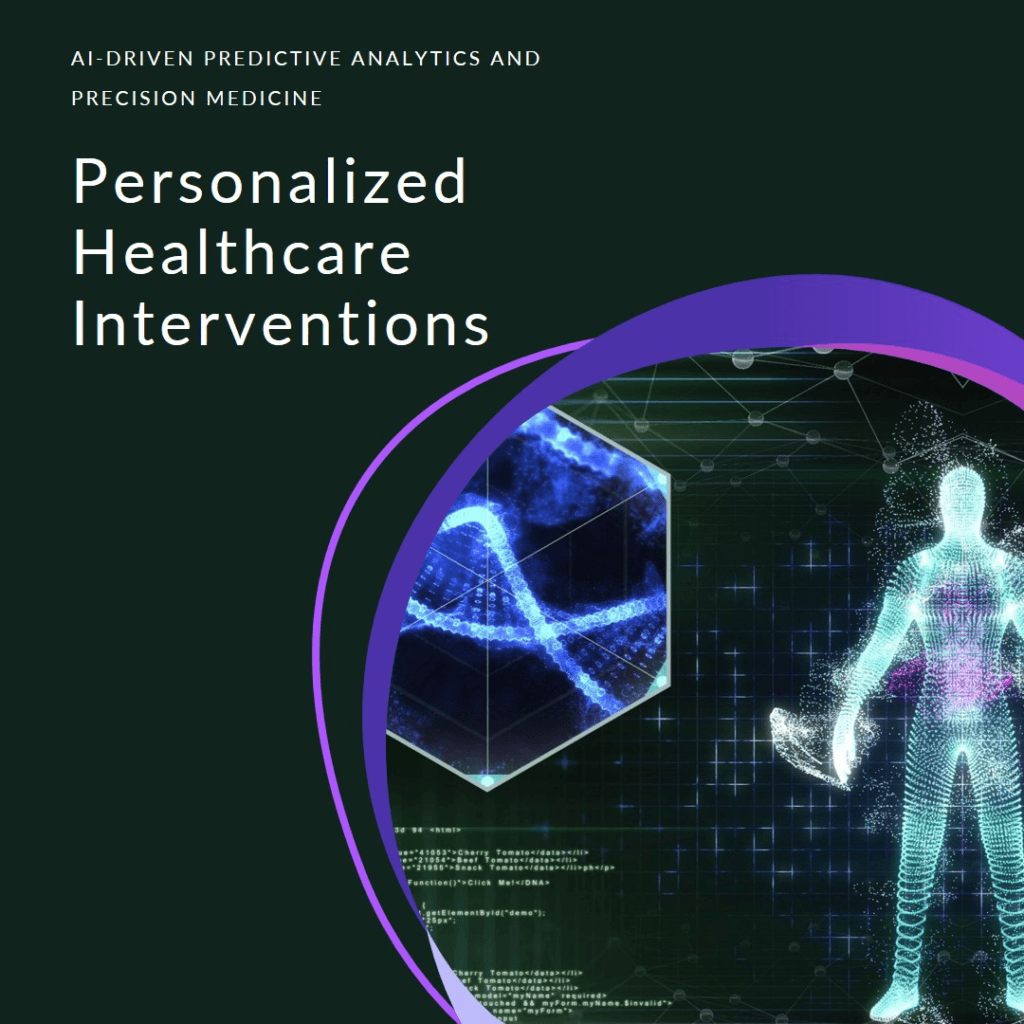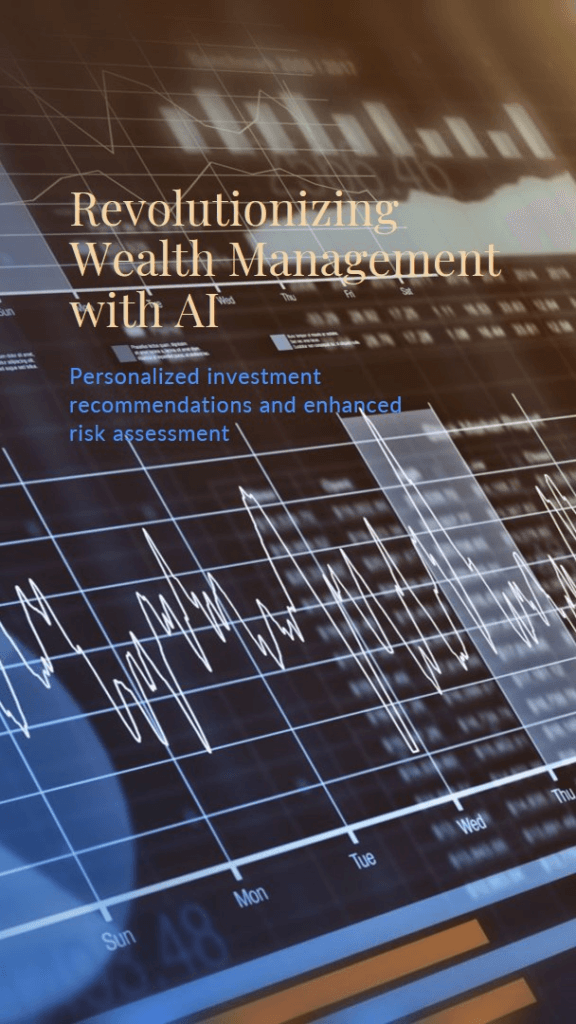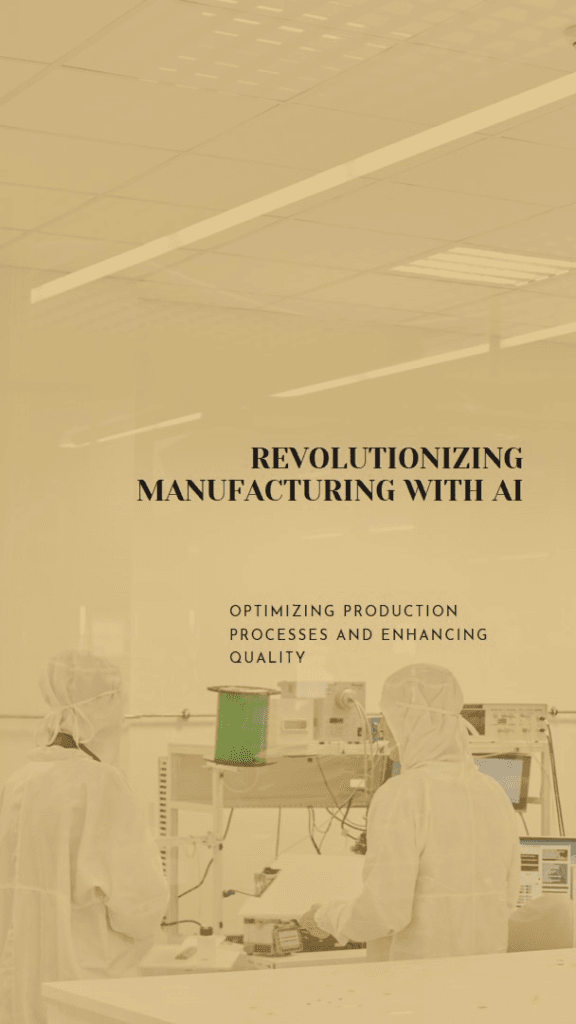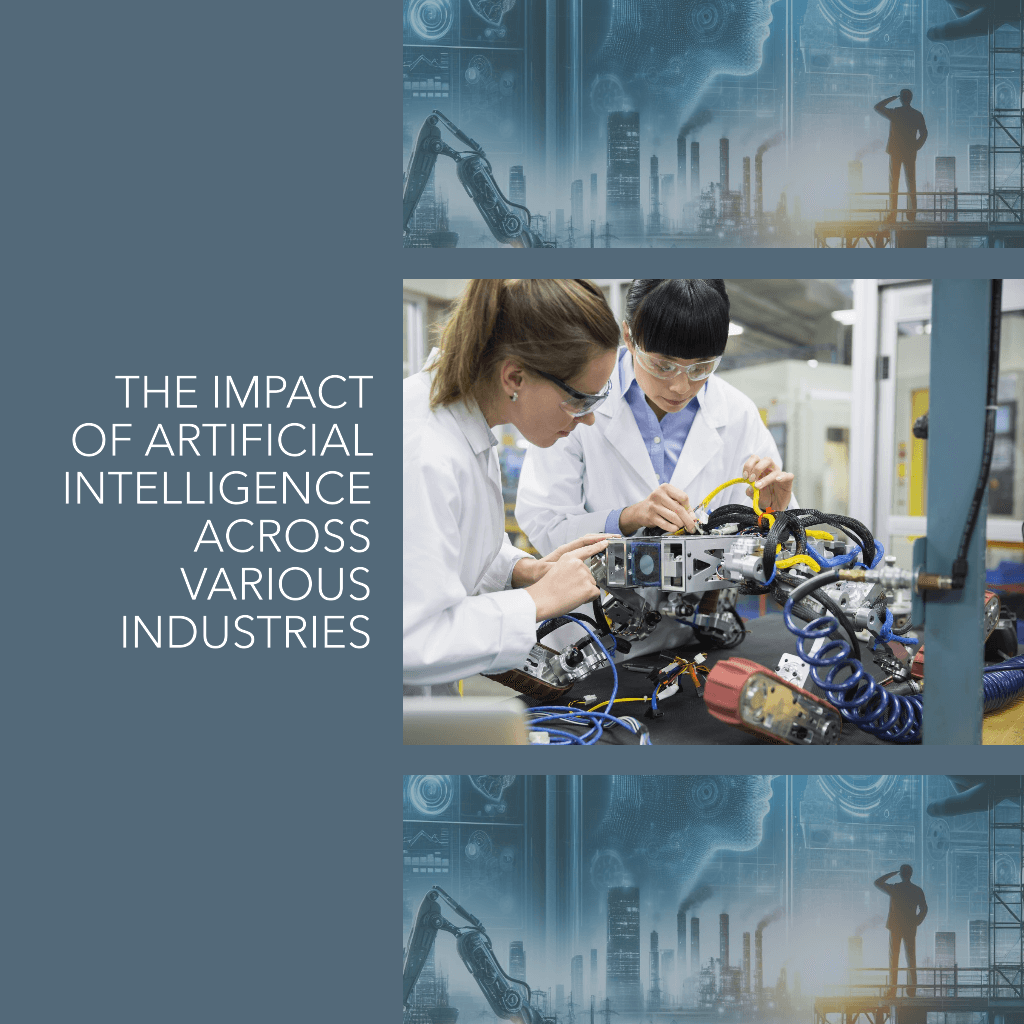Looking ahead, the future of Artificial Intelligence holds boundless possibilities, with continued advancements poised to further revolutionize industries and redefine societal norms. Emerging technologies such as Deep Learning, Natural Language Understanding (NLU), and Reinforcement Learning are poised to unlock new frontiers in AI innovation, enabling machines to emulate human-like cognition and decision-making capabilities.
Healthcare: Precision Medicine and Predictive Analytics

In healthcare, the integration of Artificial Intelligence (AI)-driven predictive analytics and precision medicine holds the promise of personalized healthcare interventions tailored to an individual’s unique genetic makeup, lifestyle, and environmental factors. By leveraging vast amounts of patient data, AI algorithms can identify subtle patterns and correlations, enabling early disease detection, optimized treatment regimens, and proactive health management strategies.
Finance: AI-Powered Wealth Management and Risk Assessment

The financial sector is witnessing a paradigm shift towards Artificial Intelligence AI-powered wealth management and risk assessment solutions that harness the power of big data analytics and predictive modeling. AI-driven robo-advisors offer personalized investment recommendations based on individual risk profiles, financial goals, and market trends, democratizing access to wealth management services and optimizing portfolio performance. Furthermore, AI-enabled risk assessment models enhance fraud detection, regulatory compliance, and cybersecurity measures, safeguarding financial institutions against evolving threats and vulnerabilities.
Education: Virtual Learning Environments and Adaptive Assessments
In education, the proliferation of virtual learning environments and AI-driven adaptive assessments is poised to revolutionize the way students learn and educators teach. Virtual reality (VR) and augmented reality (AR) technologies create immersive learning experiences that transcend traditional classroom boundaries, enabling students to explore complex concepts in interactive and engaging ways. AI-powered adaptive assessments dynamically adjust learning content and pacing based on individual student proficiency levels, ensuring personalized learning pathways and mastery of key concepts.
Manufacturing: AI-Integrated Supply Chains and Smart Factories

The manufacturing sector is embracing AI-integrated supply chains and smart factories to optimize production processes, enhance product quality, and maximize operational efficiency. AI-driven predictive maintenance systems leverage IoT sensors and real-time data analytics to anticipate equipment failures, minimize downtime, and optimize maintenance schedules, thereby reducing operational costs and enhancing overall productivity. Moreover, AI-enabled collaborative robots (cobots) work alongside human workers to automate repetitive tasks, improve workplace safety, and drive continuous process improvement initiatives.
Transportation: Autonomous Mobility and Sustainable Logistics
In transportation, the proliferation of autonomous mobility solutions and sustainable logistics practices is reshaping urban mobility and revolutionizing freight transportation networks. Autonomous vehicles powered by AI algorithms offer safe, efficient, and eco-friendly alternatives to traditional modes of transportation, reducing traffic congestion, emissions, and transportation-related fatalities. Furthermore, AI-driven logistics optimization platforms optimize delivery routes, mode selection, and cargo consolidation, minimizing carbon footprints and promoting environmental sustainability.
Conclusion: Embracing the AI Revolution for a Better Tomorrow
In conclusion, the transformative potential of Artificial Intelligence across various industries is poised to usher in a new era of innovation, efficiency, and societal progress. From healthcare to finance, education to manufacturing, AI-driven solutions are reshaping traditional paradigms, empowering organizations to unlock new opportunities, mitigate challenges, and thrive in an increasingly digital and interconnected world. Embracing the AI revolution is not merely a choice but a necessity for those seeking to remain competitive, relevant, and impactful in the ever-evolving landscape of the 21st century.
I’d love to hear your thoughts! What areas do you think AI will have the biggest impact on?










